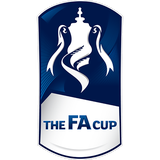
How the FA Cup, another late-season rally play into Arsene Wenger's Arsenal future
Sunday is not just a north London derby. This is the north London derby in which Tottenham Hotspur, if it wins, could guarantee finishing ahead of Arsenal in the league for the first time since 1995. Victory would take Tottenham 17 points clear of Arsenal, which would have five games remaining, and it would ensure that Spurs end a run that has come in recent years to symbolize their biggest perceived failing.
While Tottenham has clearly made significant improvement under Mauricio Pochettino, that inability to finish above Arsenal–particularly last season when Spurs took two points from its final four games to allow Arsene Wenger’s side through to second place–has been taken as an indication that a quality of “Spursiness” still remains, a mental weakness that will always mean Tottenham fails to press home promising positions. But the reverse is also true: the moment at which Tottenham finishes above Arsenal will be yet another blow struck at Wenger’s increasing battered reputation.

Wenger’s future remains unclear. His contract expires in the summer and it’s not even clear whether he has decided if he will stay on. What seems sure, though, is that it is his decision. The club will offer him a contract if he wants one. As Arsenal lost 3-0 to Crystal Palace three weeks ago, it seemed his reign had runs its course. That was arguably the worst performance Arsenal has produced under Wenger, a display lacking not merely organization but also spirit.
Yet Wenger has a habit of dancing on the brink. Again and again it has seemed that Arsenal was reaching the point of no return, only to pull back, to rally late in the season, to qualify for the Champions League, to finish above Spurs and to offer hope of success to come. That Monday night at Selhurst Park it felt as though all hope had gone. But Wenger switched to a back three, and, while nobody could claim Arsenal was playing with great fluency, it has won three games in a row. Catching Tottenham may be improbable, but qualifying for the Champions League for a 20th successive season is not.
• WILSON: Who could replace Wenger at Arsenal if he goes?
The adoption of a back three, though, in itself seems to suggest how bad things have gotten. When Wenger arrived at Arsenal in October 1996, one of his first acts was to try to wean the team away from a system that used three central defenders. Faced with opposition from the players, he relented, but the back four had been instilled for his first full season in charge, when Arsenal won the double. Since then, Arsenal has always used a back four. The 3-4-2-1 may be fashionable, but Wenger has not usually been a manager much swayed by what others are doing. The willingness to make a change perhaps indicates an impressive flexibility, but it also hints at somebody questioning his core beliefs.
The second of those three wins in a row was perhaps the most significant. It wasn’t just that it was an FA Cup semifinal; it was that it was against Manchester City. The FA Cup has become an unsatisfactory yardstick; there’s almost a feeling that what matters is not so much winning but how it is won. There’s an odd sense, too, that, because Wenger has already won the competition a record six times, it is somehow devalued. It would be an astonishing achievement for Wenger to win it again (only three clubs, including Arsenal, would have won it more) but nobody has ever doubted his capacity to win the FA Cup. The issue of late, rather, has been consistency over a whole season, the grim familiarity of the bad month that undermines a campaign, the inevitability of defeat every time Arsenal plays a genuinely big club in a genuinely big game.

That’s why beating City was so important. It wasn’t just that Arsenal was in the final; it was that it had beaten a major side to get there–in the league this season, Arsenal has won just one of eight clashes with other members of the Big Six, a failing that has become habitual. Arsenal’s FA Cup successes in 2014 and 2015 affected Wenger’s standing only marginally, because they came against Hull and Aston Villa: if they were not anticlimactic exactly, there was nonetheless the sense that those were games it was expected to win. Against Chelsea this year, though, Arsenal will start as an underdog; there would be glory in victory, rather than the sense of relief that has characterized those last two successes (in particular the Hull game, given Arsenal fell two behind early on).
Beating Chelsea at Wembley would at least prove that Arsenal could still prevail in big games against the best, a quality that has been called increasingly into doubt if late. But then, should Wenger’s future really hang on one game? And were he to win, might that not be the perfect time to say goodbye?
The late-season, faith-affirming rally has become a regular Arsenal trope in recent seasons. Familiarity is diminishing its value. The question, really, should go beyond the FA Cup. Fans should ask themselves whether it seems plausible that, even allowing for a summer of unprecedented and uncharacteristic spending, Arsenal could mount a serious title challenge next season. And if the answer is no, then Wenger’s time is up.
